When moving through the home buying or selling process in Connecticut, the home inspection is that crucial step that both parties frequently find themselves unsure of what they should expect. Buyers are concerned about the underlying issues that can impact the worth of the property, while sellers are concerned with the repairs needed to finalize the sale. It is during this time that the most frequent inquiry is, “How long does the home inspection take?”
While it may seem to be a simple task, the reality is that the inspection procedure may vary depending on several key factors for individuals.
In this blog post, we’ll walk you through the typical duration of a home inspection, what can cause it to take longer, and how you can prepare for a smooth and efficient process.
What is a Home Inspection?
A home inspection is a detailed evaluation of a property’s condition, conducted by a licensed inspector before the sale of the home.
During the inspection, the inspector carefully examines the home’s major systems and structures. The goal is to identify any existing or potential issues that might require repairs or maintenance.
How Does a Home Inspection Affect Individuals? |
|
| Buyers | Sellers |
| A home inspection informs buyers about the actual state of the property. It points out any defects, such as structural flaws, leaks in the plumbing, or electrical malfunctions, so buyers have a clear idea of what they’re committing to. In case the property needs extensive repairs, buyers can employ the inspection report to negotiate a reduced price or request the seller to repair the defects prior to closing. It also ensures the house to be safe and worthwhile. | For sellers, a home inspection provides the opportunity to fix issues in advance of listing the property. Repairing issues in advance makes the house more appealing to buyers and avoids delays during negotiations. A clean report instills confidence and trust, which enables sellers to support their asking price and close sales sooner. In Connecticut, this is particularly useful in the case of older homes or oceanfront homes, which could have certain challenges. |
Typical Duration of a Home Inspection
A typical home inspection in Connecticut usually takes between two and four hours, though the answer to how long does the home inspection takes can vary depending on several key factors.
1. Size of the Home
One of the most decisive conditions for inspection time is the size of the property, i.e.,
- Smaller houses, such as condominiums or single-family residences with less than 1,500 square feet, usually require two hours.
- Larger homes, especially those with multiple floors, outbuildings, or complex elements, may take four hours or more to fully inspect.
2. Age and Condition of the Home
Older structures or abandoned structures will typically take more extensive inspections. Inspectors will likely take more time reviewing for defects that include:
- Outdated electrical systems
- Aging plumbing
- Structural concerns
In such cases, the inspector will need extra time to evaluate potential problems and explain them to the buyer.
3. Number of Features and Systems
The complexity of the home’s features can also impact the inspection time. Homes with multiple systems and special features, such as:
- HVAC units
- Fireplaces
- Swimming pools
- Septic systems
- Smart home technology
Each of these elements requires individual assessment to ensure they’re functioning properly, which adds time to the overall inspection.
The Inspection Process
The home inspection process usually follows a sequence of steps to check each of the major elements of the property exhaustively. This is how it works:
1. Exterior Inspection
The inspector begins by inspecting the exterior of the house. This involves the roof, foundation, siding, drainage, and landscaping. They check for damage, including cracks in the foundation, missing shingles, or inadequate drainage that can cause water problems.
2. Interior Inspection
The inspector then goes inside to inspect the structure and systems of the house. This involves the inspection of:
- Electrical system: Checking outlets, light switches, and circuit breakers to make sure they are functioning correctly.
- Plumbing: checking pipes, faucets, toilets, and water pressure for leaks or other problems.
- HVAC systems: Checking heating and cooling systems for efficiency and repair requirements.
- Structural integrity: Checking walls, ceilings, floors, and insulation for damage or wear.
3. Testing Features
The inspector checks different features inside the house to make sure they are functioning correctly. These include:
- Inspecting appliances such as stoves and dishwashers.
- Testing water pressure in showers and sinks.
- Make sure doors and windows open and close easily.
4. Identifying Hazards
The inspector searches for possible hazards like water damage, mold, pest infestation, or safety hazards like bad wiring. These are noted in detail for the buyer to see.
5. Providing Maintenance Tips
If the buyers visit the inspection, the inspector may also offer tips on how to maintain the house in a healthy state in the long run. These may be tips on HVAC system maintenance or avoiding future water damage.
6. Delivering the Report
Upon finishing the inspection, the inspector puts together his findings in a comprehensive report consisting of photos, descriptions of issues, and repair or further evaluation recommendations. The buyer usually receives this report within 1–2 days from the time the inspection is finished.
Factors That Can Extend the Home Inspection Timeline
While the time for a home inspection is well covered in the above section, the answer to how long does the home inspection takes can be influenced by several factors that may cause delays. Here are the major ones:
- Weather Conditions
Weather may occasionally hold up the inspection process, particularly in Connecticut. In case of heavy rain or snow, the inspector may not be able to access some sections of the home, such as the roof or foundation. For instance, a rainy roof would be dangerous for the inspector to tread on, so they would have to return another day to complete the job.
- Scheduling Conflicts
Occasionally, it might be difficult to find a time when all parties, buyers, sellers, and inspectors, are available. If the seller is not around or if inspectors are very busy in the busy seasons of spring, it takes more time to complete the inspection. Coordination between the two parties should be good enough to prevent delays.
- Need for Specialists
If the inspector finds something serious, like foundation problems or structural damage, they might recommend calling in a specialist to take a closer look. This could add a few extra days to the process since you’ll need to wait for the specialist’s availability and their evaluation.
- Age of the Home
Older houses tend to require longer to inspect because they may have old systems or wear and tear that require special attention. Inspectors might take a longer time to inspect such things as old wiring, plumbing, or structural items, which are not as typical in new houses.
- Extra Features
Houses with extra features such as pools, septic tanks, or smart home systems may take longer to inspect. These systems need specialized inspections to ensure that everything is functioning correctly and safe to use.
Get the Right Support with Kristin Egmont During the Home Inspection Process
Whether you’re buying or selling a home, having an experienced realtor like Kristin Egmont by your side can significantly simplify the home inspection process. Her 20+ years of experience in the Connecticut real estate market have equipped her with the knowledge to guide clients through inspections efficiently.
From knowing how long does the home inspection takes to making sure the inspector inspects all the right places, Kristin keeps you on track. She’ll also help interpret the findings, negotiate repairs, and deal with any issues that come up during the inspection. Her experience means you’re ready at every turn, whether you’re a buyer wanting to proceed or a seller wanting to fix any problems before listing.
Ready to move forward? Contact Kristin today to get expert advice and support throughout your home inspection, no matter if you are in Fairfield, Stamford, or any other city in Connecticut.




